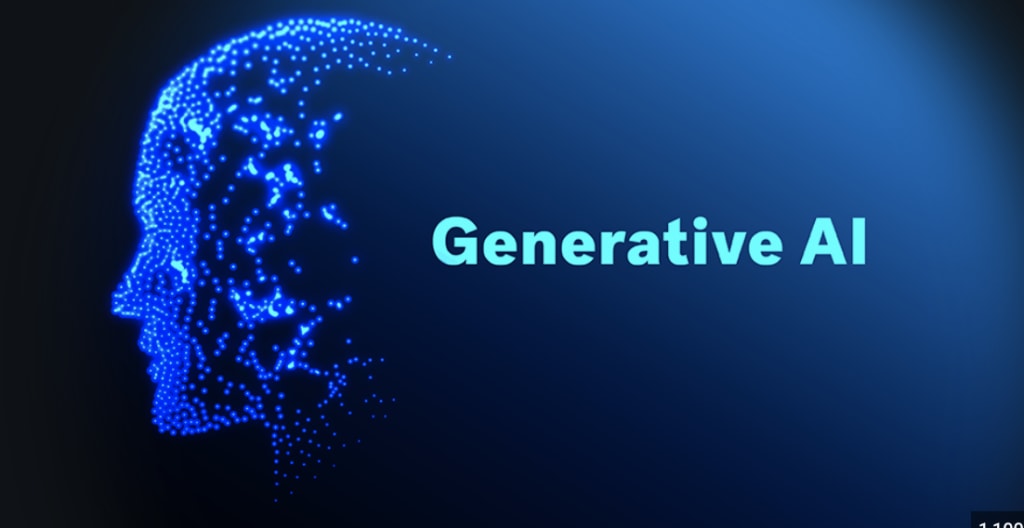
Introduction
In the intricate tapestry of technological evolution, one thread stands out in its promise and potential: Generative Artificial Intelligence (AI). As we stand at the precipice of a new era, the latest trend of generative AI has captured the imagination of innovators and futurists alike. This article delves into the latest advancements in generative AI, its transformative impact on our world, and examines notable examples, including the enigmatic Sora.
Understanding Generative AI
Generative AI refers to a class of algorithms and models designed to create content autonomously. Unlike traditional AI systems that operate within predefined parameters, generative AI possesses the remarkable ability to produce original and creative outputs. At the heart of this innovation lie neural networks, particularly Generative Adversarial Networks (GANs) and Variational Autoencoders (VAEs), which enable machines to learn and mimic patterns present in vast datasets.
The Changing Landscape
Generative AI is reshaping various sectors, from art and entertainment to healthcare and finance. In the realm of creativity, artists and designers are leveraging generative algorithms to produce captivating visual art, music compositions, and even literature. The boundary between human and machine creativity blurs as AI-generated content garners acclaim and appreciation.
Moreover, generative AI holds immense potential in revolutionizing industries reliant on data-driven decision-making. In healthcare, AI models can generate synthetic patient data for training medical professionals, simulate clinical trials, and even aid in drug discovery processes. Similarly, in finance, generative models assist in generating market forecasts, optimizing trading strategies, and detecting fraudulent activities.
The Promise of Generative AI
The allure of generative AI lies in its capacity to augment human creativity and problem-solving capabilities. By harnessing vast datasets and learning patterns, AI systems can unlock novel solutions to complex problems. Furthermore, generative models enable personalized experiences, catering to individual preferences and requirements with unprecedented precision.
In addition to fostering innovation, generative AI has the potential to democratize access to creativity and knowledge. Open-source frameworks and collaborative platforms empower developers and enthusiasts worldwide to contribute to the advancement of AI research. As the technology matures, it promises to bridge cultural divides and facilitate cross-disciplinary collaborations, paving the way for a more inclusive and interconnected global community.
Notable Examples
Among the myriad of generative AI projects, certain examples stand out for their ingenuity and impact. One such instance is DALL-E, developed by OpenAI, which generates realistic images from textual descriptions. By understanding and interpreting human language, DALL-E transcends traditional limitations in image generation, opening new avenues for creative expression and design automation.
Another notable example is MuseNet, an AI model capable of composing musical pieces across various genres and styles. MuseNet's ability to mimic the styles of renowned composers and generate original compositions has sparked intrigue within the music industry, hinting at a future where AI collaborates with human artists to create transcendent melodies.
Sora: A Visionary Creation
Amidst the constellation of generative AI projects, Sora emerges as a beacon of innovation and possibility. Conceived by a team of interdisciplinary researchers, Sora embodies the culmination of years of research in artificial intelligence, neuroscience, and cognitive psychology.

At its core, Sora is an AI-driven virtual companion designed to engage users in meaningful conversations and activities. Unlike conventional chatbots constrained by scripted responses, Sora possesses the ability to learn and adapt to individual preferences and conversational nuances in real-time. By leveraging state-of-the-art natural language processing and generative models, Sora transcends the boundaries of traditional human-computer interaction, fostering genuine emotional connections and companionship.
Furthermore, Sora's creators envision a future where AI companions like Sora serve as empathetic companions for individuals facing loneliness, mental health challenges, or social isolation. By providing companionship, emotional support, and personalized assistance, Sora exemplifies the transformative potential of generative AI in enhancing human well-being and quality of life.
Challenges and Ethical Considerations
While the prospects of generative AI are undeniably exciting, they also pose significant challenges and ethical considerations. The issue of data privacy and security looms large, as generative models trained on vast datasets may inadvertently perpetuate biases and privacy violations. Moreover, the existential questions surrounding the autonomy and consciousness of AI raise profound philosophical and ethical dilemmas that necessitate careful consideration and debate.
Furthermore, the rapid proliferation of generative AI technology necessitates robust regulatory frameworks and guidelines to ensure responsible deployment and mitigate potential risks. Transparency, accountability, and inclusivity must underpin the development and deployment of AI systems to foster trust and mitigate unintended consequences.
Conclusion
In the grand tapestry of human progress, generative AI emerges as a transformative force, reshaping our world in profound and unexpected ways. From unleashing new frontiers of creativity to revolutionizing industries and enhancing human well-being, the latest trend of generative AI holds immense promise and potential. As we navigate the complexities of this technological renaissance, it is imperative to approach with caution, curiosity, and compassion, ensuring that AI remains a force for good in shaping tomorrow's world. In the age of generative AI, the possibilities are as boundless as the human imagination itself.






Comments (1)
Comprehensive one.